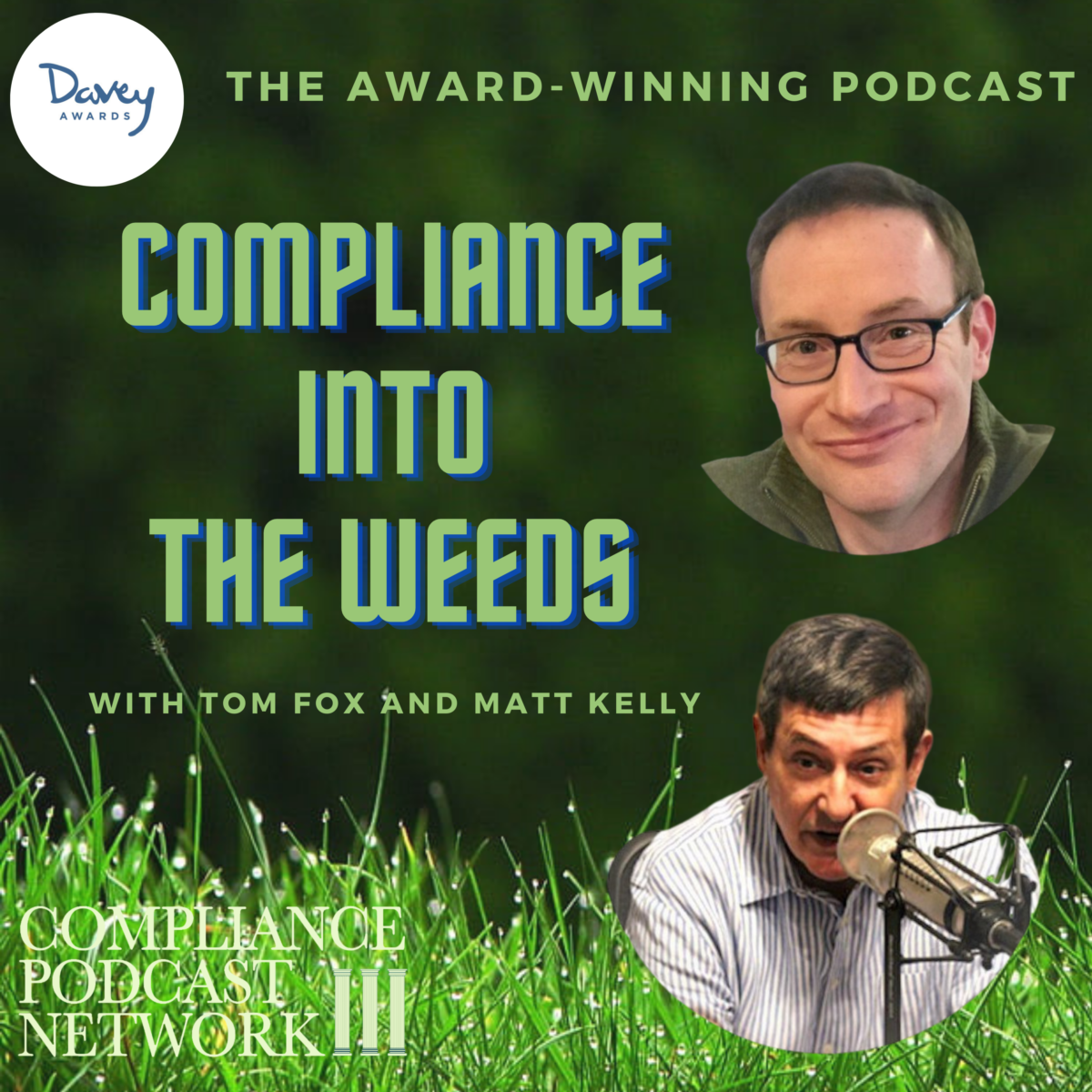One of the most talked about subjects in corporate compliance is the issue of pre-taliation—an increasingly common enforcement target by the U.S. Securities and Exchange Commission (SEC). Matt Kelly and I did a recent podcast on the topic, and you can check out the recent episode of Compliance Into the Weeds for an audio discussion of the topic. Matt has blogged on the topic of Radical Compliance. This post will deeply dive into this issue and show why pre-taliation clauses in contracts, which inhibit whistleblowers from claiming financial rewards, are illegal and how compliance officers can effectively address this recurring problem.
What Is Pre-Taliation?
Pre-taliation refers to contract provisions that prevent or discourage employees from reporting potential misconduct to regulators. Typically, these clauses claim an employee forfeits the right to financial rewards associated with whistleblowing. While companies cannot directly prohibit employees from reporting wrongdoing, they attempt to introduce barriers that dissuade individuals from taking the financial risk of blowing the whistle. These clauses have a “chilling effect” on potential whistleblowers and are, quite simply, illegal under SEC rules.
The SEC’s recent enforcement actions against several corporations show that despite being a known violation, many businesses continue to use these clauses in their employment contracts. The fines may be relatively small, but the impact of these enforcement actions is clear: companies must remove pre-taliation language from all contracts, or they will face the consequences.
Recent SEC Enforcement Actions on Pre-Taliation
Last week, the SEC sanctioned seven companies for including pre-taliation language in their employment contracts. One major violator, Acadia Healthcare Corporation, was fined $1.4 million, while others, including TransUnion and IDEX Corporation, paid penalties ranging from $19,000 to $690,000. While these fines may seem minor compared to other enforcement actions, the real issue lies in the recurring use of these illegal clauses.
For the compliance professional, the key is that these contracts stated that employees were free to report potential violations to regulators. Still, they included an additional clause that employees had to forfeit any right to claim whistleblower rewards. This approach violates SEC whistleblower provisions designed to incentivize whistleblowers with financial rewards for bringing misconduct to light.
Why Do Companies Use Pre-Taliation Clauses?
Companies continue to use such clauses to prevent them from going to the SEC or other regulators. Including pre-taliation language is an intentional tactic designed to scare employees into silence. These clauses are legally dubious, but they can effectively discourage employees from whistleblowing if they are unaware of their legal rights. The logic is simple: why risk your career and financial livelihood to report misconduct without potential financial reward?
In some cases, these companies may also be testing the boundaries of the law if regulators do not prioritize enforcement. However, as the SEC’s actions have shown, this is a serious miscalculation, as it is clear that using such clauses is intentionally trying to prevent employees from exercising their federal rights.
Addressing Pre-Taliation: A Compliance Officer’s Roadmap
How can compliance officers avoid falling into the same trap as Acadia Healthcare and others? Here’s a practical roadmap for compliance professionals tasked with eliminating pre-taliation clauses from their companies’ contracts:
- Conduct a Contract Review
The first step is to conduct a comprehensive review of all employment contracts, both current and historical. This is easier said than done, particularly for large organizations with decentralized operations. As Matt Kelly pointed out, the challenge lies in the sheer volume of contracts and the number of people involved in drafting and approving them. Contracts may come from various teams—HR, legal, commercial, and even procurement—so identifying all instances of pre-taliation language requires a coordinated effort across multiple departments.
- Establish Clear Contract Policies
The next step is establishing clear and enforceable policies about what can and cannot be included in contracts. This policy should be enterprise-wide and include specific language that prohibits the inclusion of pre-taliation clauses. Not only does this create a standard for new contracts, but it also sets a clear precedent for remediating older contracts that may still contain illegal language.
This policy should also include specific guidelines for all contracts, not just employment agreements, as pre-taliation clauses can sometimes slip into customer contracts, vendor agreements, and third-party relationships. For instance, earlier this year, J.P. Morgan was penalized for including pre-taliation language in its customer contracts, which stipulated that customers had to notify the company before reporting misconduct to regulators.
- Collaborate with Legal and HR Teams
A cross-functional approach is critical to solving this issue. Compliance officers must work closely with the legal and HR teams to implement contract policies correctly. HR plays a key role in drafting employment contracts, while the legal department ensures the language complies with regulatory standards. Without close collaboration, tracking down all the contracts that need to be updated or ensuring that future contracts are compliant will be nearly impossible. The idea that there is a magical person in the company who can fix this problem is a myth. Addressing pre-taliation requires a team effort involving multiple functions and a strong commitment to enterprise-wide remediation.
- Provide Employee Education
Another important step is to educate employees about their rights under whistleblower laws. Pre-taliation language works best when employees do not understand that these clauses are illegal. By informing employees of their rights, compliance officers can undermine the chilling effect these clauses are designed to create. Employees should know they are legally entitled to report misconduct to regulators and cannot be penalized.
- Establish a Remediation Plan for Older Contracts
Once all pre-taliation clauses have been identified, the next step is to establish a remediation plan. This may involve contacting former employees who signed contracts with illegal language and current employees who must be informed that their contracts have been updated. While this can be a complex process, it is essential for maintaining the integrity of the company’s compliance program.
- Monitor for Future Violations
Finally, compliance officers should establish ongoing monitoring to ensure that pre-taliation language doesn’t slip into future contracts. This can be done by including contract reviews as part of regular compliance audits or by implementing automated tools to flag problematic language. By proactively monitoring contract language, compliance officers can prevent future violations and ensure that their company complies with SEC regulations.
A Simple Fix but a Complex Process
Addressing pre-taliation clauses may seem straightforward, but as Matt Kelly pointed out, it can be highly complex. With multiple stakeholders involved and various contracts to review, it truly takes a coordinated, enterprise-wide effort to eliminate these illegal provisions.
For compliance officers, the message is clear: do not wait for the SEC to come knocking. Review contracts, establish clear policies, and educate employees about their rights. By taking these steps, compliance officers can ensure that their companies are compliant and foster a culture where whistleblowers feel empowered to come forward. With the new DOJ Whistleblower Financial Incentive Program, it is only a matter of time before the DOJ comes knocking.










